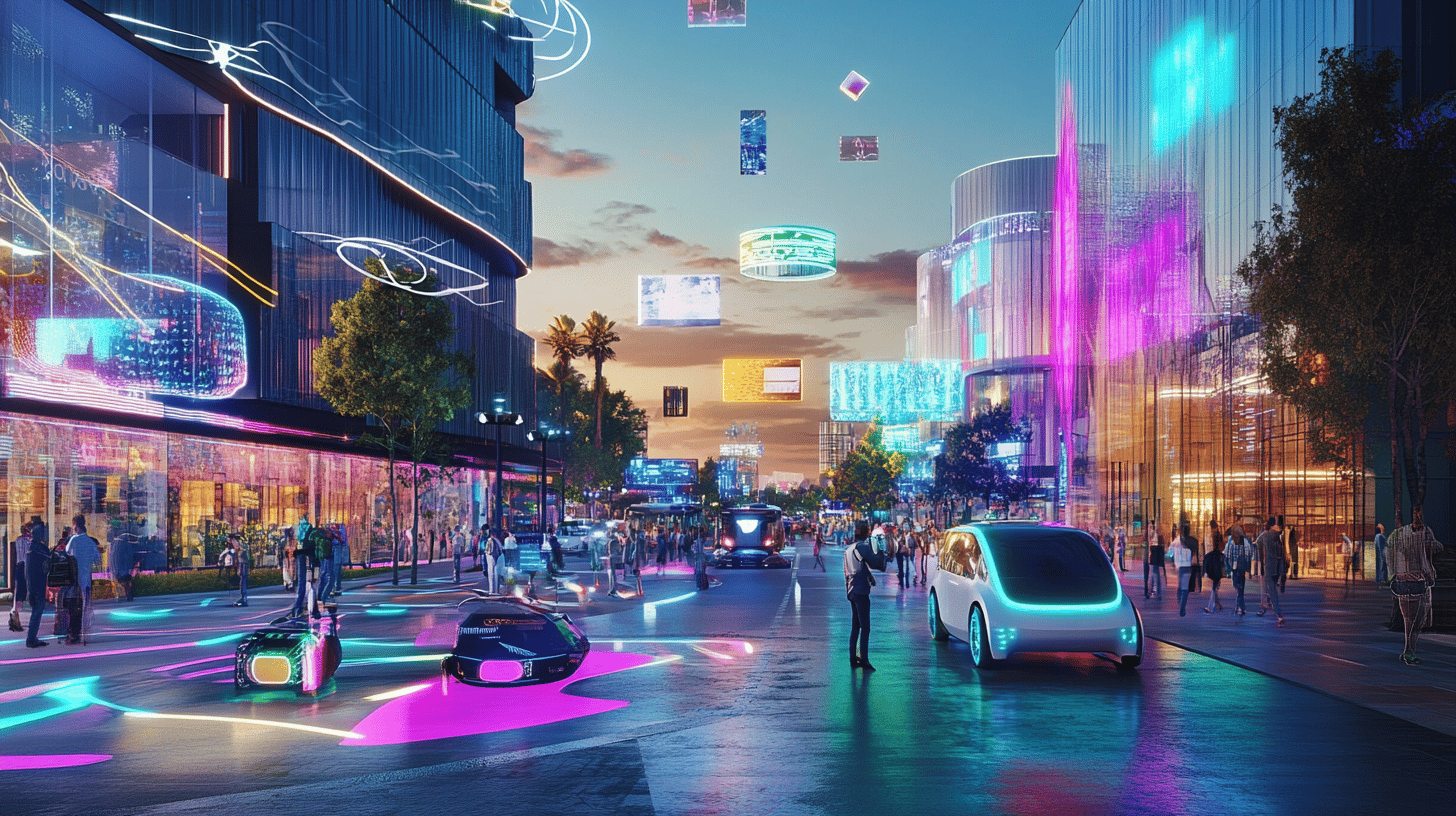Technology is advancing at a rapid pace, shaping our lives in ways we often cannot predict. Every year, new innovations emerge, changing the landscape of society and offering unprecedented opportunities. In this article, we’ll explore some of the key trends shaping the future of technology and how they will affect our daily lives in 2025 and beyond.
Artificial Intelligence and Machine Learning
Artificial Intelligence (AI) and Machine Learning (ML) are at the forefront of the technological revolution. By 2025, these technologies are expected to become even more integrated into our daily lives. From personal assistants on mobile devices to chatbots that improve customer experience, AI is becoming a fundamental part of our daily lives.
Automating repetitive tasks and personalizing services are just some of the ways AI will transform the way we interact with technology. Predictive analytics will lead to more informed business decisions, while AI systems in healthcare can diagnose diseases more accurately and quickly.
The Autonomous Vehicle Revolution
Autonomous vehicles are gaining momentum, and by 2025, we can expect to see a significant increase in their adoption. Sensing and navigation technologies are developing rapidly, which promises to reduce accidents and improve transportation efficiency. Additionally, autonomous vehicles could change the work landscape, allowing people to perform other activities while on the move.
Cities can be redesigned to accommodate this new form of transportation, with less space dedicated to parking and more green space. Integrating autonomous vehicles into public transportation could provide a more sustainable and cost-effective way to get around.
5G Technology and Connectivity
The advent of 5G technology will have a profound impact on our lives. With exponentially faster download and upload speeds, connectivity will be more reliable and efficient. This will not only improve the user experience on mobile devices, but also enable innovations such as the Internet of Things (IoT).
IoT connects devices to the internet, enabling automation and remote control of a variety of gadgets in our homes and offices. By 2025, we can expect smarter homes, where everything from appliances to security systems will be interconnected, making our lives more convenient and secure.
Blockchain and Data Security
In today’s digital world, data security has never been more critical. Blockchain, a technology that enables secure and transparent transactions, is becoming a popular solution for ensuring data integrity across a variety of industries. From financial institutions to healthcare systems, blockchain can combat fraud and ensure privacy.
By 2025, blockchain is expected to not only validate financial transactions but also revolutionize the way we manage digital identities and contracts. Businesses and individuals who embrace this technology will be one step ahead in security and efficiency.
Augmented Reality and Virtual Reality
Augmented Reality (AR) and Virtual Reality (VR) are emerging as powerful tools. Already used in gaming and entertainment, these technologies are expanding into education, industry, and even medicine. By 2025, AR and VR are expected to become commonplace in learning environments, providing immersive experiences that facilitate information retention.
In medicine, VR simulations allow professionals to practice surgical procedures in controlled environments before performing them on real patients. In addition, the use of these technologies can transform the way we interact in social events, providing meetings and collective experiences in virtual environments.
Green Technology and Sustainability
As global warming becomes a more pressing issue, green technology will emerge as a key focus by 2025. Innovations in renewable energy, sustainable transportation and smart recycling are making environmentally friendly practices not just desirable, but necessary.
Solar and wind power systems, for example, are becoming more accessible and efficient, as are electric cars, which will become a viable and common option on the market. Devices that help monitor and reduce our energy consumption will also become more present, encouraging a more sustainable lifestyle.
Ethical and Social Challenges
With any innovation comes ethical and social challenges. The growing reliance on technology can create issues around privacy, personal data security and inequality of access. In 2025, it will be crucial to discuss the responsible use of technology, ensuring that innovations benefit everyone, leaving no one behind.
Conclusion
We are on the cusp of a new technological era that promises to transform everyday life and human interactions. With innovations like artificial intelligence, autonomous vehicles, 5G connectivity, and more, the future looks exciting and full of possibilities. The trends discussed in this article are not just predictions, but a glimpse of what’s to come. To make the most of this next phase, it’s vital that we continue to learn about these technologies and adapt to the changes they bring.
Technology is a powerful tool that can improve our lives, but ethical and responsible use must always be at the forefront. We invite you to join us on this journey and explore the technology that will shape our future.



